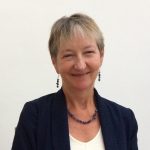 Emma Storr worked as a GP and is now a Visiting Associate Professor in Primary Care at the University of Leeds, and a published poet.
Emma Storr worked as a GP and is now a Visiting Associate Professor in Primary Care at the University of Leeds, and a published poet.
How scientific is medicine? Have some ordinary life experiences been medicalised? What is the role of doctors in improving ‘quality of life’ and what does this concept mean?
These are some of the questions that Professor Robin Downie explores in his elegantly written book, Quality of Life: A Post-Pandemic Philosophy of Medicine. Books with ‘philosophy’ in their titles make me wary. Are they going to discuss abstract concepts and theories about life that I am going to struggle to understand? However, I was delighted to find that Downie writes accessibly, in a stimulating and thought-provoking style.
What is the role of doctors in improving ‘quality of life’ and what does this concept mean?
Much of what Downie believes and expounds will resonate with GPs because of our experience of working in and with the community. Using his expertise as a moral philosopher, Downie unpicks and explores the underlying assumptions and values of Western medicine that often we take for granted, or fail to question in depth.
The first two thirds of the book is devoted to a critique of different aspects of medicine, including the ‘ethos’ of current medical practice. Downie argues that the reductive scientific approach is not sufficient because it fails to recognise the multifactorial causes of disease. I was glad to read his strong endorsement of ‘social prescribing’ and non-medical interventions such as sport and arts activities for patients, particularly for mental health problems.
Downie was one of the instigators of medical humanities teaching, and edited the anthology The Healing Arts1 that many of us have enjoyed and used with students. In the complex questions that arise in health care ethics, he claims the arts and humanities can help us understand philosophical principles because they ‘promote creative and critical thinking which is useful when dealing with idiosyncratic human beings.’ The humanities offer methods that are ‘imaginative, analytical, critical or investigative’ providing insight into human motivation and relationships. One of the strengths of the book is Downie’s ability to convey the complexity of ethical problems in medicine that can’t be solved by simply referring to the four principles of beneficence, non-maleficence, justice and autonomy. He also criticises the teaching of communication skills using a tick-box approach that oversimplifies and undermines the creative aspects of communication. As someone with experience in this area, I would defend the aim of making students more aware of the structure and business of the consultation by breaking it down into its component elements.
‘Health’ is indivisible from well-being, vigour and other qualities that cannot be measured quantitatively.
Downie’s post-pandemic philosophy of medicine advocates an integrated approach to improving health outcomes. He emphasises that ‘health’ is indivisible from well-being, vigour and other qualities that cannot be measured quantitatively. His concept of ‘communitarianism’ is idealistic and aspirational. Health should be seen as a community good and ‘resources directed towards removing underlying causes of health problems in dysfunctional communities’. As GPs working in deprived areas, we are all too aware of health inequalities in the population we serve. Sadly, it will require a huge sea change in economic and social policy to achieve Downie’s desirable proposal.
Why should GPs read this book? Because it will make them think deeply about how our health service might be transformed in the future to embrace a much more integrated societal view of well-being and health. In a post-Covid world, staying healthy would include access to the arts and humanities, a safer green environment and an enhancement of quality of life for everyone. It’s an inspiring vision.
Reference
- Robin Downie. The Healing Arts. Oxford University Press, 1994.
Featured book
Robin Downie. Quality of Life: A post-pandemic philosophy of medicine. Imprint Academic, 2021. ISBN-13 : 978-1788360593







[…] on Quality of Life: A Post-Pandemic Philosophy of Medicine by Robin Downie. That can be read here. She’s also had a number of poetry reviews published by The London Grip: Unfolded from Olivia […]